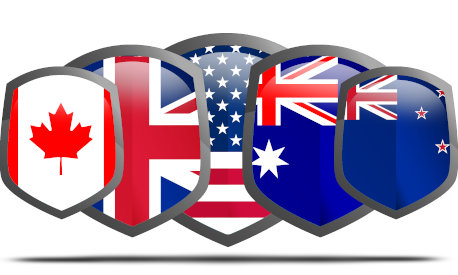The Five Eyes Law Enforcement Group is an alliance between Australia, Canada, New Zealand, the U.K. and the U.S., whereby the security and intelligence agencies of these countries collaborate to tackle transnational crime.
Every two years, the Five Eyes chair rotates through the heads of nine member agencies across the five countries. On 26 October 2021, Australian Federal Police (AFP) Commissioner Reece Kershaw assumed the chair of the Five Eyes, succeeding U.S. Drug Enforcement Administration (DEA) Administrator Anne Milgram.
In a press release, the AFP demonstrates its increasing focus on combatting transnational crime and highlights the key crime areas it will focus on.
Increasing focus on transnational crime
Commissioner Kershaw acknowledged that “The global threats from transnational organised crime against governments, business and individuals have been compounded by the COVID-19 pandemic.”
The Commissioner stressed that due to such developments, the role of the Five Eyes in fighting transnational crime and upholding international and national security will become increasingly important.
This transnational focus is evidenced by the AFP being posted in 33 countries, which allows it to harness global law enforcement partnerships to target offenders.
Operational priorities
The strategic direction of the Five Eyes is set in consensus between the member agencies. Commissioner Kershaw outlined the AFP’s operational priorities, which provide a window into the likely priorities of the Five Eyes Law Enforcement Group more broadly.
The AFP’s operational priorities include transnational serious organised crime, counter-terrorism, espionage and foreign interference, and cybercrime.
Serious organised crime
Commissioner Kershaw said that “Transnational serious organised crime will continue to target Australia but the AFP is systemically busting open the leaderships of outlaw motorcycle groups, cartels and syndicates.”
“We do expect criminals will try to smuggle more contraband into Australia when more flights resume. My warning to criminals is this: do not test the AFP and our partners’ resolve to identify and charge you.”
Counter-terrorism
The Commissioner stressed how the pandemic has exacerbated the threat of terrorism, stating that “Those with extremists’ views are using the pandemic to recruit and spread their misinformation.”
The AFP seeks to work with its Five Eyes partners to identify and disrupt extremists preparing for acts of terror.
Espionage and foreign interference
Commissioner Kershaw said that those seeking to harm Australians through espionage and foreign interference, amongst other cross-border crimes, will be disrupted and arrested through the work of the AFP and the Five Eyes.
Cybercrime
The AFP has deployed officers across Europe, Africa and the United States to enhance its capabilities and to strengthen partnerships to counter cybercrime.
Commissioner Kershaw referred to cybercrime as the “Break and enter of the 21st Century” but that “Unlike traditional burglaries, offenders can be thousands of kilometres away and still reach Australian wallets and nest eggs.”
Key takeaways
AFP Commissioner Reece Kershaw has assumed the chair of the Five Eyes Law Enforcement Group, and has stressed the group’s continuing commitment to tackling transnational crime. While the priorities of the Five Eyes are set in consensus between member agencies, the AFP’s operational priorities as outlined by Commissioner Kershaw provide insight into the likely priorities of the Five Eyes.



